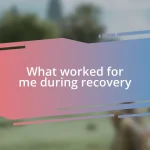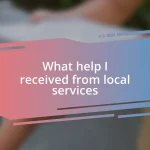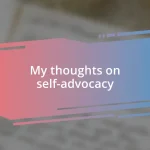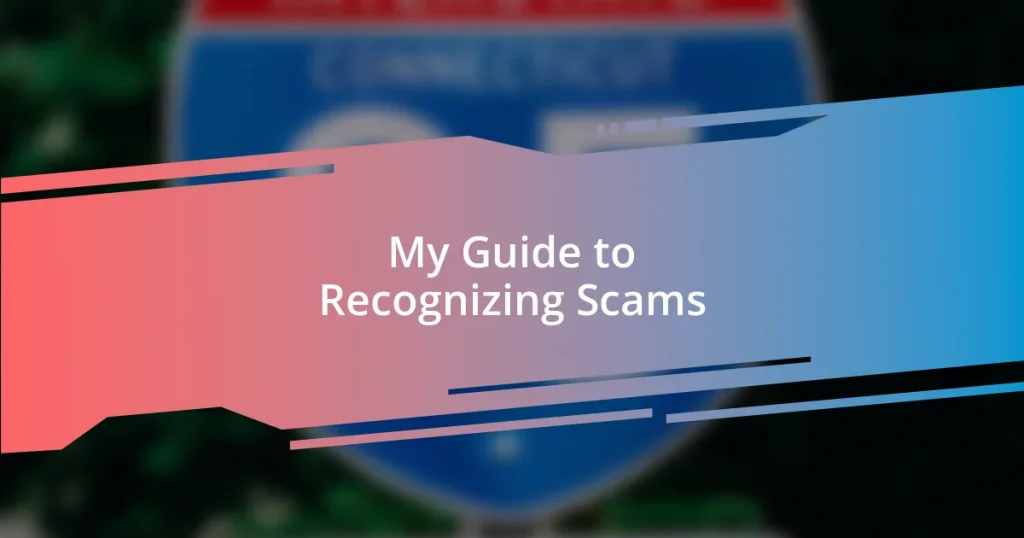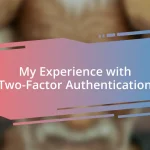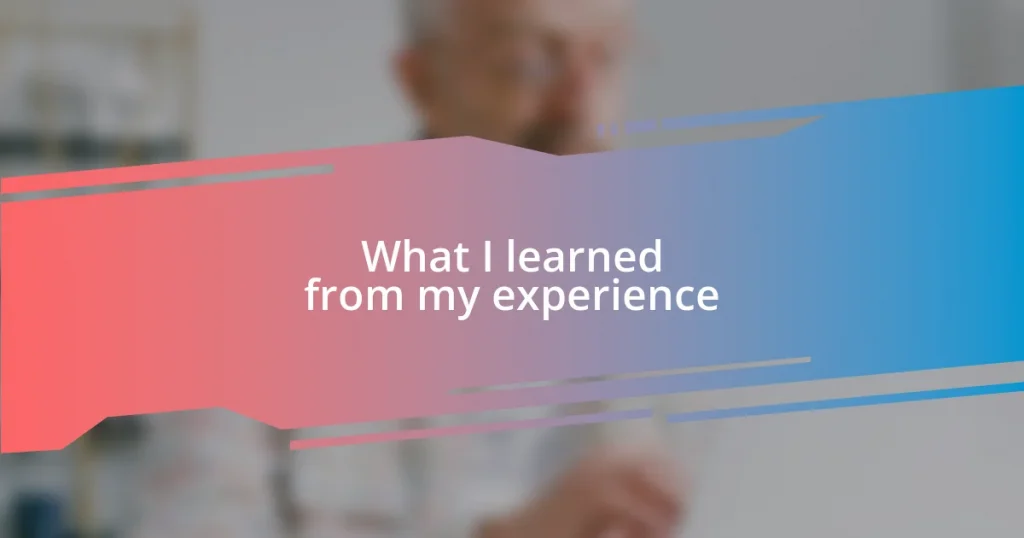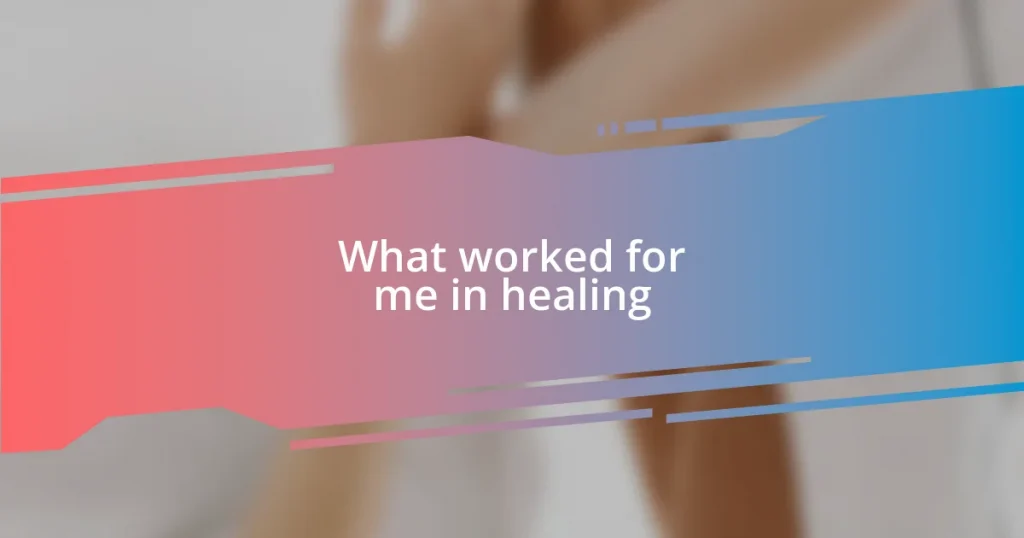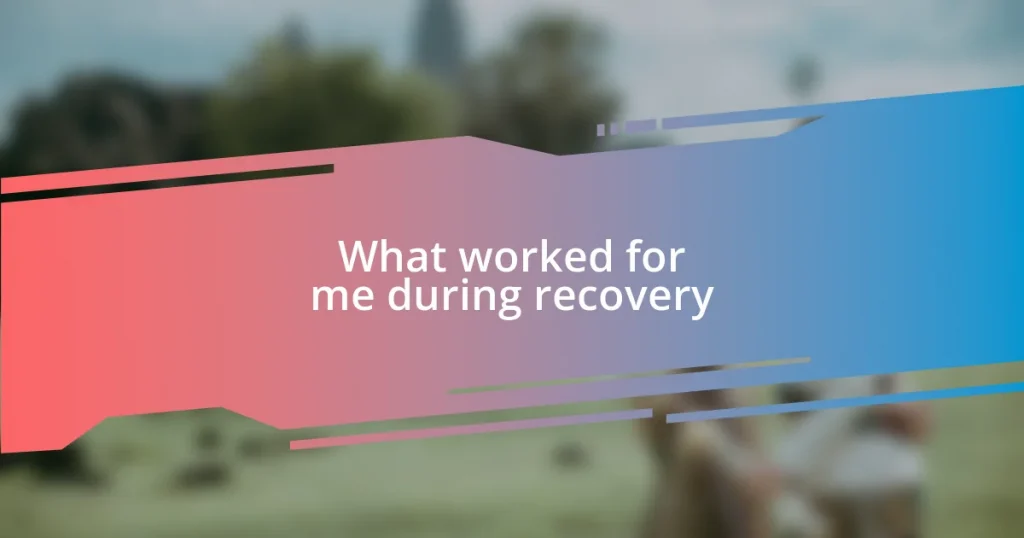Key takeaways:
- Scams exploit trust and emotions, often using tactics like urgency, impersonality, and unrealistic offers to manipulate victims.
- Common scams include phishing, tech support, romance, investment, and lottery scams, requiring vigilance and skepticism to avoid falling prey.
- Reporting scams, educating others, and utilizing resources like the FTC can empower individuals to protect themselves and foster community awareness.
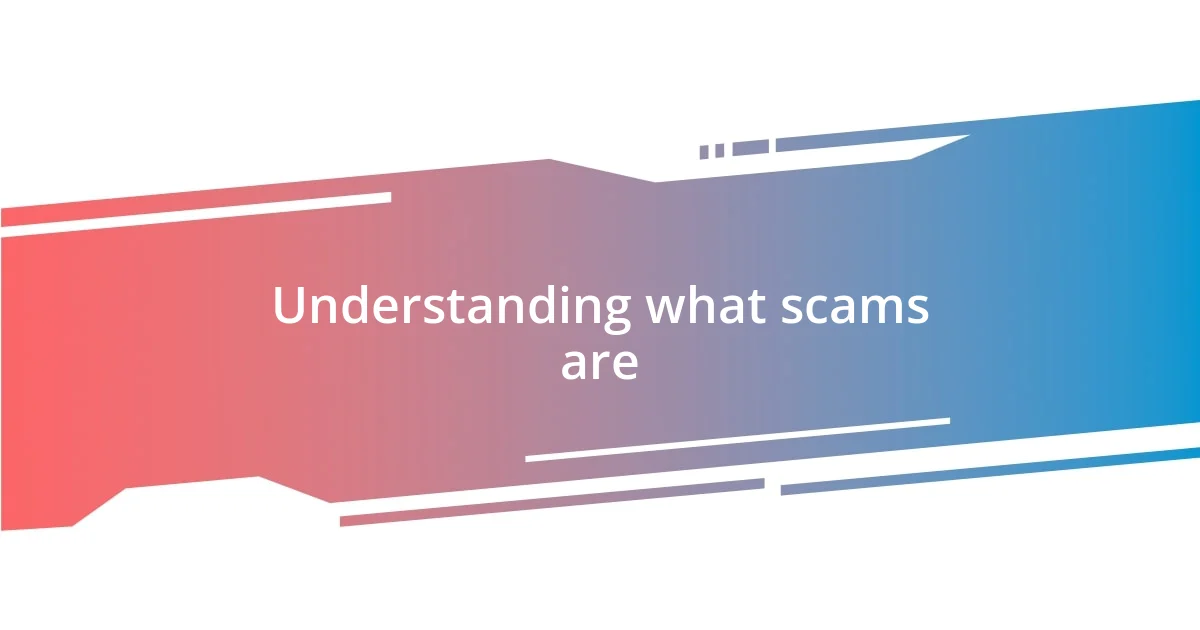
Understanding what scams are
Scams are deceptive schemes designed to con individuals out of their money or personal information. I remember receiving an email that promised a luxurious vacation for a very reasonable price—my heart raced as I thought about the possibilities. But then I paused and asked myself, “Why would someone offer such a deal?” That’s when it dawned on me: if something seems too good to be true, it often is.
At their core, scams exploit trust and vulnerability. When I was younger, a friend fell victim to a phone scam, thinking he was helping a charity. It was gut-wrenching to watch someone I cared about feel so embarrassed and betrayed. This personal experience taught me how easily emotional appeals can cloud our judgment; the scammers know how to tug at our heartstrings to get what they want.
The sheer variety of scams out there is also alarming. From phishing attempts that trick you into revealing passwords to elaborate Ponzi schemes that promise huge returns, each scam preys on specific fears or desires. Have you ever wondered why people fall for these schemes repeatedly? In my view, it’s often because of a combination of desperation, hope, and the clever ways scammers craft their messages.
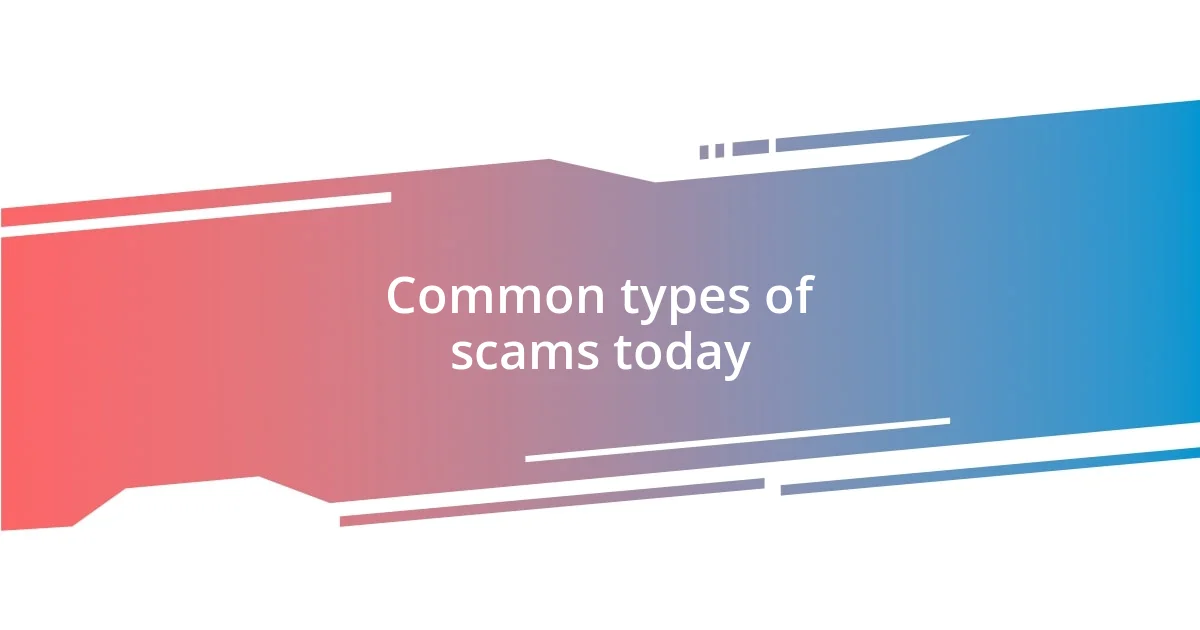
Common types of scams today
It’s astonishing how many ways scammers try to manipulate us today. I once got a message on social media alerting me about an urgent security breach on my bank account, urging me to click a link. I hesitated, realizing this was a classic phishing attempt. Scammers often disguise themselves as trustworthy sources, and it’s incredibly easy to fall for their tactics if you’re not cautious.
Here are some common types of scams today:
- Phishing Scams: Fake emails or texts posing as reputable sources to steal personal information.
- Tech Support Scams: Impersonators claiming to be from a tech company, convincing victims their devices are compromised.
- Romance Scams: Fraudsters create fake online personas to exploit emotional connections, often leading to financial loss.
- Investment Scams: Promising high returns with little risk, these schemes prey on people’s desire to grow their wealth.
- Lottery and Prize Scams: Notifications that you’ve won a prize you didn’t enter, only to be asked for a payment upfront.
Each one of these scams strikes at our emotions or our desire for security, which is why it’s crucial to remain vigilant and skeptical. I’ve learned to pause and question everything that feels too good to be true. It’s a habit I’d recommend to everyone!
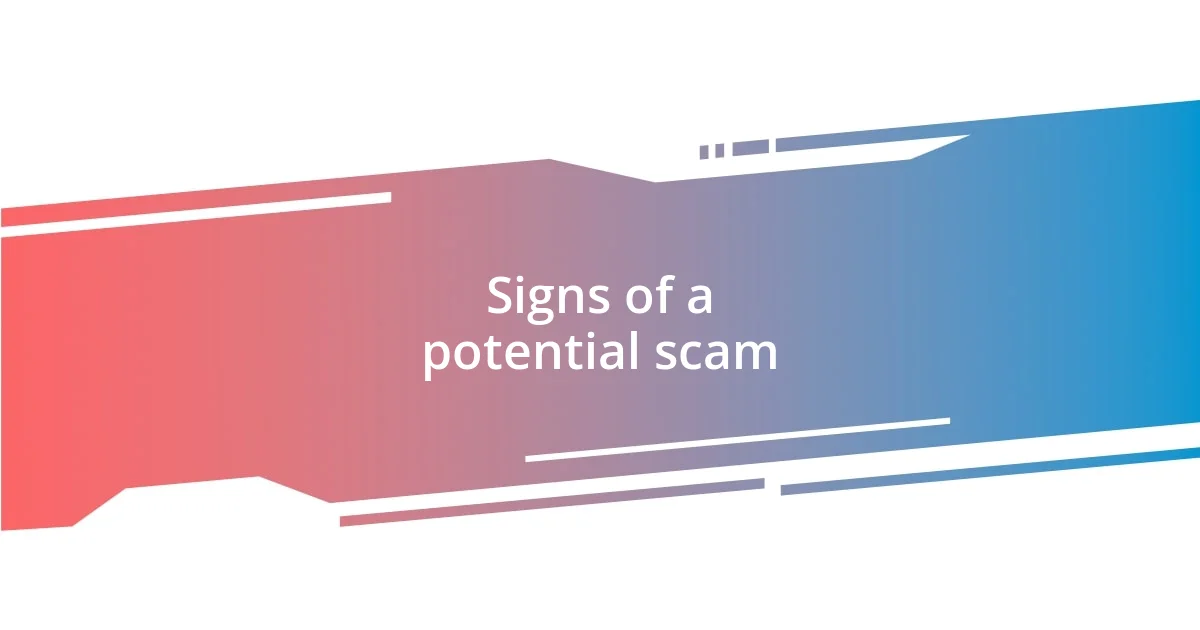
Signs of a potential scam
Spotting potential scams can often feel like navigating a minefield. One surefire sign of trouble is when you encounter urgency—scammers love to create a sense of panic. I once received a seemingly innocent message about my account being compromised, but it came with an urgent call to action. It didn’t take long for me to realize that legitimate companies will never pressure you to make quick decisions. Taking a deep breath and analyzing the situation allowed me to recognize that red flag.
Another major indicator is the lack of personalization. If you receive a generic greeting like “Dear Customer,” this should set off alarm bells. Scammers often use these impersonal approaches, taking shortcuts to mass-target individuals. I remember receiving an email claiming I had won a lottery I never entered. It was a perfect example of impersonality—they didn’t know my name, yet they wanted my personal information. It made me stop and think: if this were real, wouldn’t they address me directly?
Lastly, be cautious of offers that seem to be ‘too good to be true.’ When a friend told me about an online investment opportunity that promised quick profits without effort, my skepticism kicked in. I asked myself, “Why would anyone give away money without a catch?” My instincts told me that real investments require research and time, not flashy promises. Recognizing these signs early can protect you from falling victim to scams.
| Sign | Description |
|---|---|
| Urgency | Pressure to act quickly, often accompanied by fear tactics. |
| Lack of Personalization | Generic greetings and impersonal communication methods. |
| Too Good to Be True | Offers that promise unrealistic returns or rewards. |
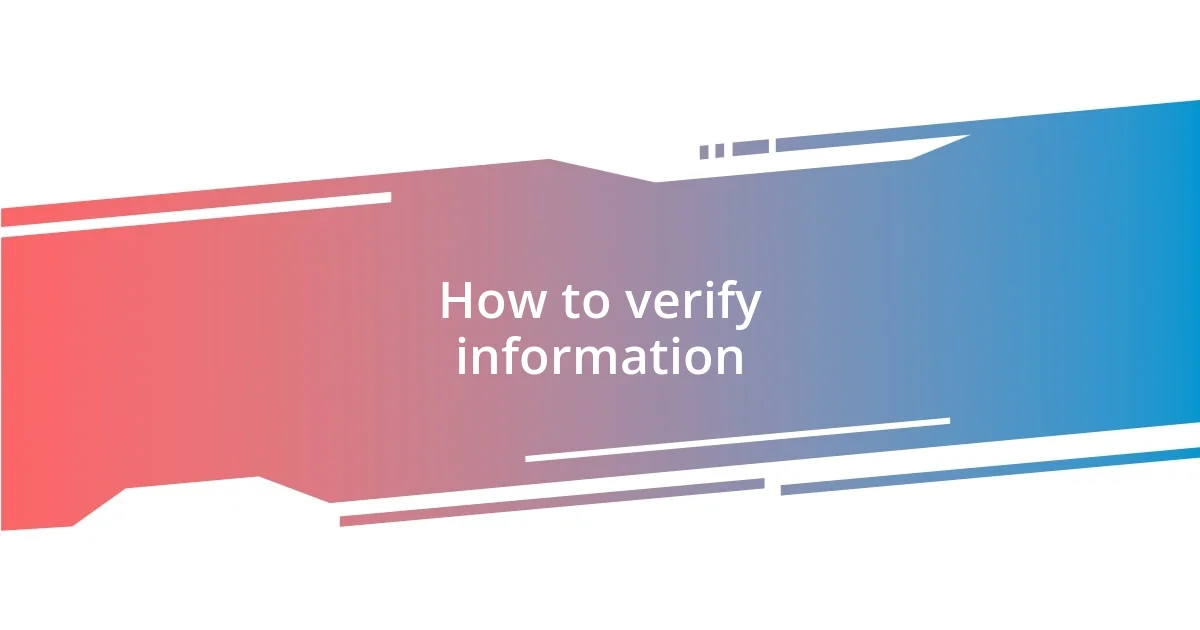
How to verify information
When it comes to verifying information, I often start by cross-referencing sources. If I receive an email or text that sounds suspicious, my first action is to check the sender. I’ve discovered that a quick search of the company name alongside terms like “scam” or “fraud” can reveal an abundance of information. Have you ever had that gut feeling urging you to dig deeper? Trust that instinct; it can lead you to the truth.
It’s equally important to look for official communication channels. For example, if I encounter a message from a bank urging immediate action, I don’t click any links. Instead, I visit their official website or call their customer service directly. I’ve found that this extra moment of caution can save me from a lot of potential headaches. Why take the risk when a simple verification could ensure my safety?
Lastly, I suggest utilizing fact-checking websites. Whenever I’m uncertain about a claim I’ve seen online, I often turn to reliable platforms that specialize in debunking misinformation. These sites can be a treasure trove of knowledge, helping me differentiate between fact and fiction. It’s fascinating how much clarity I gain from a few minutes of research. Have you tried this before? I think you’ll be surprised by what you learn!
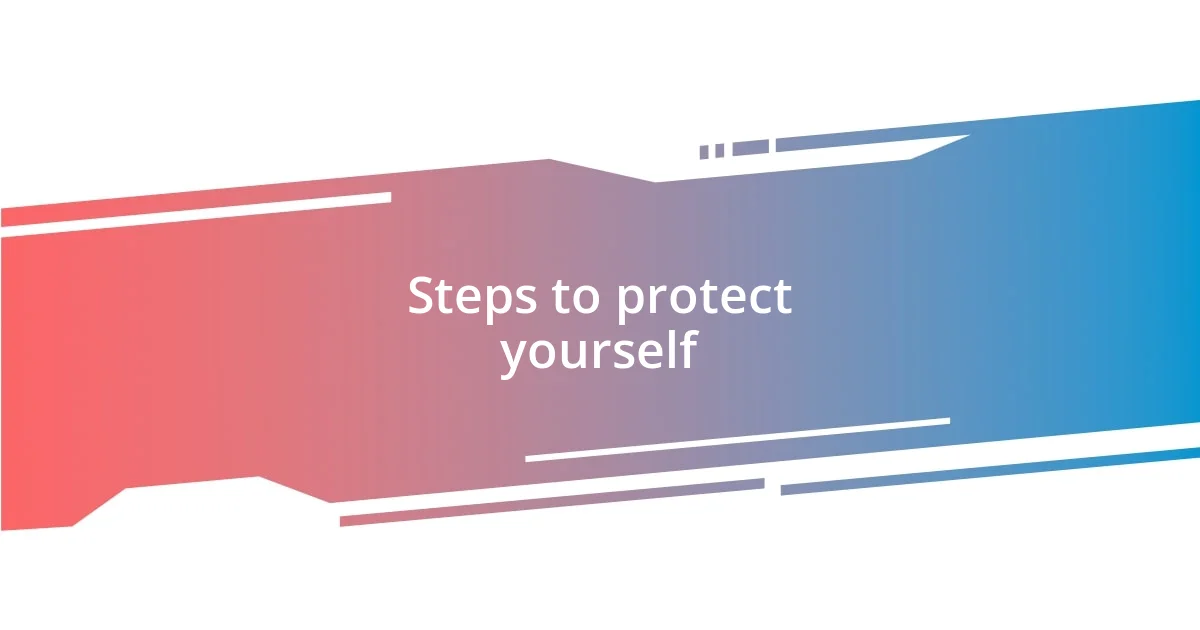
Steps to protect yourself
To protect yourself from scams, it’s vital to educate yourself about common tactics used by fraudsters. I remember a time when I nearly fell for a phishing scam that promised me an incredible deal on a gadget. I stopped in my tracks when I noticed the odd email address; it was a subtle reminder that if something feels off, it probably is. Taking the time to familiarize myself with the signs saves not just my money, but also my peace of mind.
Setting up strong passwords and enabling two-factor authentication is another effective strategy. I once implemented this on my online accounts, and I can’t tell you how much safer it made me feel. Just the thought that a scammer would need more than just a password to access my information gives me a sense of security that I deeply appreciate. Have you considered how much protection this simple step could provide you?
Staying connected with trusted friends and family is key as well. I often find that discussing suspicious messages with close ones helps me gain perspective. I vividly recall sharing an odd text I received about a “once-in-a-lifetime opportunity.” My friend immediately recognized it as a scam and prevented me from making a hasty decision. Creating a network of support can be a safeguard against fraud—why not rely on those you trust to help keep you informed?
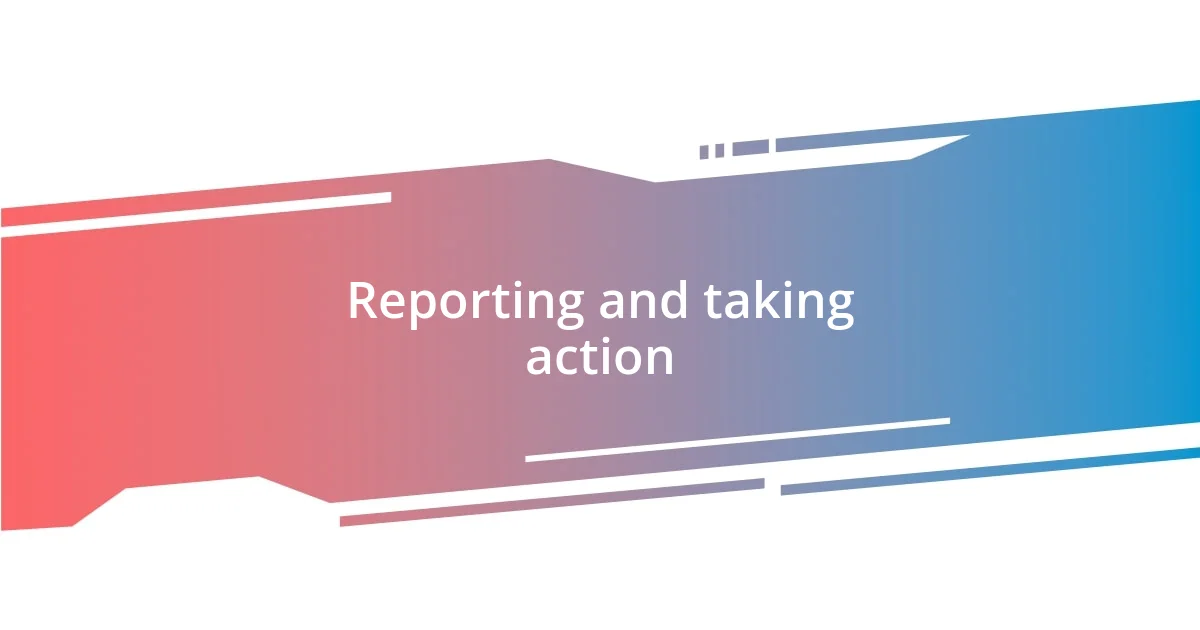
Reporting and taking action
When I encounter a scam, my first thought is always about responsible reporting. I once received a call from someone claiming to be from the IRS, demanding immediate tax payments. After hanging up, I felt a mix of anger and concern. Reporting that incident to the Federal Trade Commission (FTC) was a no-brainer. Not only was it a way to protect others, but it also made me feel empowered. Have you ever taken the time to report a scam? I encourage you to do so—it really can make a difference.
Taking action goes beyond just reporting; it’s about spreading awareness. I vividly remember a family gathering where I shared my recent experience with online scams. The conversation sparked a passionate dialogue, with others sharing their encounters. Together, we brainstormed ways to recognize and avoid such traps. Don’t underestimate the power of community. Engaging with those around you can not only educate others but also reinforce your own knowledge. Have you thought about sharing your experiences?
Sometimes, the aftermath of recognizing a scam can be overwhelming. I once clicked on a questionable link and watched my anxiety rise as I realized my mistake. I quickly took action by running a security scan on my device and changing my passwords. It reminded me how crucial it is to remain vigilant. If you’ve ever felt that sinking feeling after a close call, remember, it’s never too late to act. Simple steps can greatly enhance your cybersecurity and give you peace of mind. How would you respond if you found out you were a target of a scam?
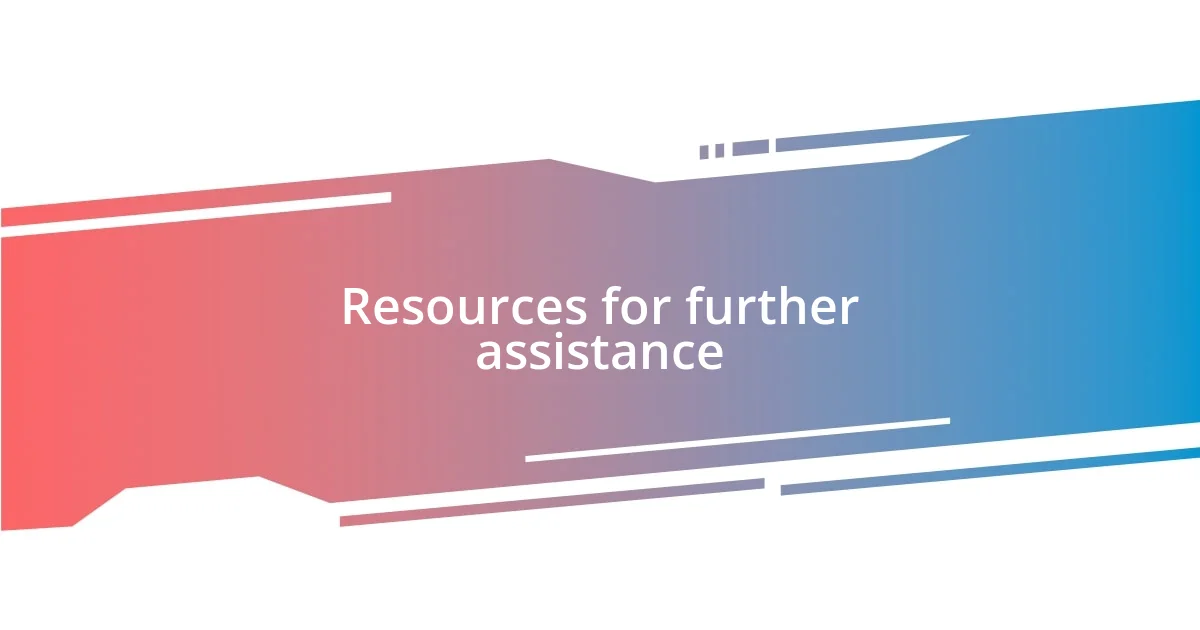
Resources for further assistance
When you’re seeking further assistance, a great starting point is the Federal Trade Commission (FTC) website. I found it incredibly resourceful when reporting an online scam I encountered. Their extensive guidance not only helped me understand my rights as a consumer, but also provided information on how to protect myself in the future. Have you ever explored such official sites for help?
Another invaluable resource is your local consumer protection agency. I remember contacting mine after an unsettling encounter with an online seller. The staff was incredibly supportive, offering not just advice but also resources specific to scams prevalent in my area. It made me wonder—how well do we tap into these local supports?
Additionally, turning to online forums dedicated to combating scams can be both enlightening and reassuring. I joined one after sharing my experience with a travel scam that seemed too good to be true. The stories and tips exchanged made me feel less isolated in my worries and more proactive as I learned from others. Have you thought about engaging with communities that have faced similar challenges?


